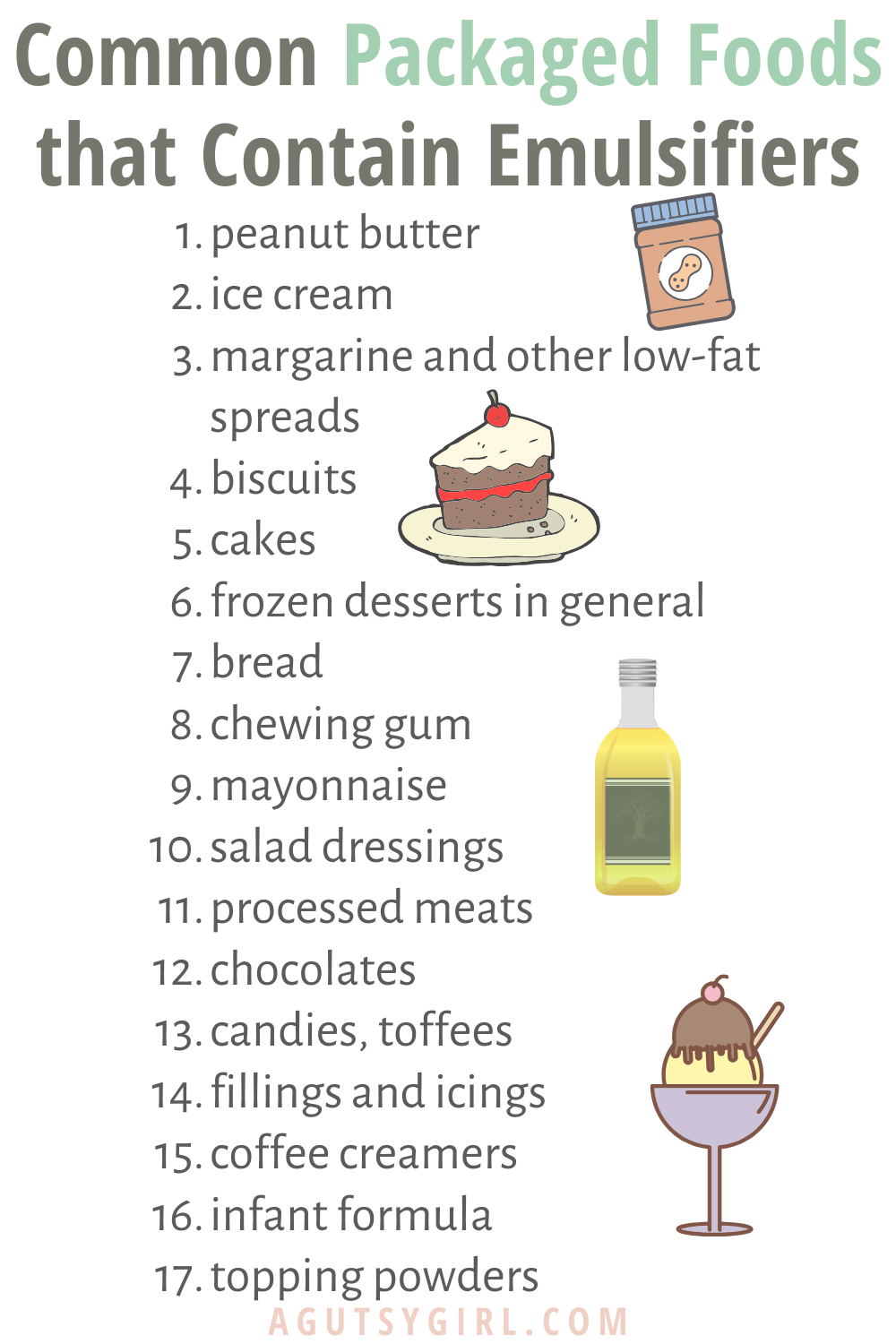All Regarding the Function of an Emulsifier in Food and Its Importance in Modern Cuisine
Emulsifiers are critical in modern-day food, facilitating the mix of immiscible liquids like oil and water. Their ability to stabilize mixtures enhances the appearance and taste of different food products. From salad dressings to baked products, emulsifiers play a substantial duty in both commercial and home food preparation. Yet, the scientific research behind their function and the future technologies in their use remain less checked out. Emulsifier In Food. What much more could be discovered about these necessary culinary agents?
Recognizing Emulsification: The Science Behind the Refine
Emulsification might seem like an easy cooking strategy, it includes complicated clinical concepts that are important for developing stable combinations of immiscible fluids, such as oil and water. At the heart of this process lies the concept of surface area tension, which protects against the two liquids from mixing normally. Emulsifiers, compounds that lower surface area stress, play a vital duty in helping with the mix of these fluids. They possess both hydrophilic (water-attracting) and hydrophobic (water-repelling) properties, enabling them to anchor themselves at the interface between oil and water.
When an emulsifier is presented and the mix is perturbed, it forms a safety obstacle around dispersed droplets of one liquid within the other, stabilizing the combination. This activity not only improves texture and mouthfeel in food products yet additionally contributes to their visual allure. Emulsifier In Food. Understanding the science behind emulsification is essential in modern cuisine, enabling chefs to produce a range of sauces, dressings, and emulsified recipes
Typical Types of Emulsifiers Used in Food
Emulsifiers are vital ingredients in the food sector, playing an important duty in maintaining mixes of oil and water. Various kinds of emulsifiers are generally used, each with unique residential properties matched for different applications. Lecithin, originated from soybeans or egg yolks, is just one of the most popular all-natural emulsifiers, usually discovered in dressings and chocolates. Mono- and diglycerides, which are originated from glycerol and fats, are extensively used in baked items and margarine to enhance texture and expand life span. An additional typical emulsifier is polysorbate 80, preferred for its capacity to enhance the consistency of ice creams and sauces. Furthermore, xanthan periodontal and guar periodontal function as thickening representatives that additionally contribute to emulsification in gluten-free items. These emulsifiers are essential to creating a stable, tasty product in modern food solutions, making sure an enjoyable sensory experience for consumers.
The Role of Emulsifiers in Numerous Food Products
A selection of food products depend on emulsifiers to attain desired structures and security. These substances promote the blending of immiscible fluids, such as oil and water, which is important in lots of refined foods. In salad dressings, emulsifiers aid maintain a consistent blend, avoiding splitting up and enhancing rack life. In baked items, they add to an uniform crumb structure and wetness retention, boosting general top quality.
Emulsifiers additionally play a substantial function in milk items, such as gelato and yogurt, where they support fat blobs, making sure a smooth mouthfeel. In addition, in condiments and sauces, they improve thickness and boost spreadability. This performance is vital in the production of delicious chocolates, margarine, and mayo, where a cohesive product is needed. In general, using emulsifiers in different browse around here food is indispensable to modern-day food production, improving security and uniformity across a large range of things.
Exactly How Emulsifiers Enhance Appearance and Flavor

When included into food products, emulsifiers greatly enhance both texture and taste, producing an even more pleasurable consuming experience. These substances promote the blending of components that generally do not mix well, such as oil and water, leading to a smoother, creamier consistency. This not just enhances mouthfeel however likewise allows flavors to disperse equally Get the facts throughout the item, amplifying the total preference.

Emulsifiers in Home Cooking: Tips and Techniques
How can home chefs properly make use of emulsifiers to enhance their meals? Emulsifiers play an essential function in achieving desirable structures and tastes in homemade recipes. For example, using egg yolks in mayonnaise or hollandaise sauce enables for a secure solution, incorporating oil and water successfully. Home chefs can also trying out mustard, which works as an emulsifier in vinaigrettes, ensuring a smooth uniformity.
In cooking, including lecithin, located in egg yolks or soy, can boost dough security and wetness retention. Furthermore, making use of business emulsifiers like xanthan periodontal or guar gum can aid thicken sauces and dressings while keeping a velvety mouthfeel.
When creating gelato or whipped garnishes, emulsifiers can prevent ice crystal formation, causing a smoother appearance. By mastering these techniques, home chefs can significantly boost their cooking developments, offering constant and enjoyable recipes that display the power of emulsification.
The Future of Emulsifiers in Culinary Advancement
As the culinary globe remains to develop, go to my site the role of emulsifiers is poised to become significantly cutting-edge and varied. Developments in food scientific research are causing the advancement of brand-new emulsifying representatives derived from natural resources, which deal with health-conscious consumers and boost the sensory top qualities of dishes. Technologies such as plant-based emulsifiers are obtaining grip, allowing cooks to produce vegan and allergen-free options without endangering texture or flavor.
In addition, the use of emulsifiers in molecular gastronomy is broadening, enabling chefs to experiment with special appearances and presentations that astound diners. As sustainability comes to be a top priority, the future may see a change in the direction of environment-friendly emulsifiers that minimize ecological impact.
Inevitably, emulsifiers will remain to play a crucial duty in cooking advancement, linking the space between custom and modernity, and allowing chefs to press the limits of creative thinking in their kitchens.
Frequently Asked Concerns

Are Emulsifiers Safe for People With Allergies?
Emulsifiers can be safe for individuals with allergic reactions, relying on their certain level of sensitivities. Nonetheless, specific emulsifiers, originated from allergenic resources like soy or eggs, may set off responses, demanding cautious active ingredient scrutiny and examination with health care specialists.
Just How Do Emulsifiers Impact Food Service Life?
Emulsifiers enhance food rack life by supporting mixtures, protecting against separation, and reducing microbial development. This security assists preserve texture and taste over time, permitting products to remain risk-free and appealing for consumption longer than without emulsifiers.
Can Emulsifiers Be Derived From All-natural Sources?
Yes, emulsifiers can be acquired from natural sources such as plants, eggs, and milk products (Emulsifier In Food). These all-natural emulsifiers aid stabilize mixes, enhancing appearance and uniformity in various food applications while being favored for health-conscious consumers
What Are the Environmental Effects of Emulsifier Manufacturing?
The environmental effects of emulsifier manufacturing include source deficiency, habitat damage, and pollution from artificial procedures. Natural emulsifier sourcing can reduce some impacts, however generally, commercial techniques still pose significant ecological difficulties to ecosystems worldwide.

Exist Vegan Emulsifiers Available in the Market?
Yes, there are numerous vegan emulsifiers offered on the market, such as lecithin originated from soy or sunflower, guar gum, and xanthan gum. These alternatives satisfy plant-based diet regimens without endangering emulsifying residential properties.
Emulsifiers are vital ingredients in the food sector, playing a critical function in stabilizing combinations of oil and water. A variety of food items depend on emulsifiers to achieve wanted textures and security. When incorporated right into food products, emulsifiers considerably improve both appearance and flavor, developing an even more enjoyable eating experience. Additionally, emulsifiers can support air pockets in whipped products like lotions and mousses, leading to a light and ventilated structure. Emulsifiers improve food rack life by supporting blends, avoiding splitting up, and minimizing microbial growth.